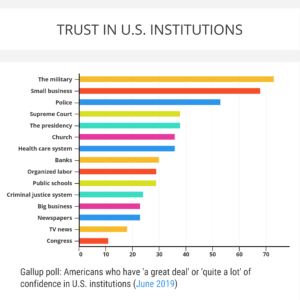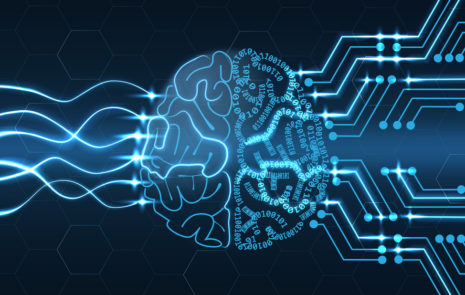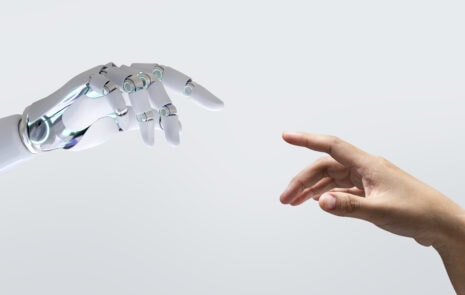
Marketing needs to rebalance humanity and technology with 20/20 vision
Since marketers work at the crossroads of technology and humanity, we must bring the right perspective to the 2020s. We need to rebalance humanity and technology with 20/20 vision.
Ahead lie dangers and opportunities. To address them, we need 20/20 vision:
- We need to be clear-sighted about what is going on. Big brands are at high risk.
- We can’t afford to become too near-sighted, placing too much trust in technology.
- Don’t become too far-sighted, buying into utopian or dystopian predictions.
- We need genuine foresight – the ability to predict what will happen and what we need to do to prepare for the future.
The stakes have never been higher: it’s time to rebalance humanity and technology
When the Internet was brand new, many people (myself included) bought into utopian expectations for it:
- Information would spread freely.
- Everyone would gain access to news and tools.
- The Internet would be a worldwide web, a community to draw people together.
- Smartphones would put all this power at our fingertips.
All these things happened. What we didn’t see coming was that:
- Disinformation and deep fakes would spread freely. In the absence of objective arbiters, no one can be certain what’s true.
- Only 58% or 4.5 billion of the world’s people have access to the Internet. 4 billion people are left out. Governments restrict and control access.
- The Internet divides people and turns tribes against each other.
- Mobile phones isolate people and weaken social ties.
The upshot: people have lost trust in big companies
In the eyes of customers, employees and investors, many big companies’ reputations and brands are on the ropes.
People don’t know when or whether to trust a company, a government, or even an economic system. That’s why The Wall Street Journal is calling on companies to make a New Year’s resolution — to address the trust crisis.
But it will take far more than one year to fix what’s been broken. Why? Because today, fewer than 1 out of 4 people trust big business, Gallup Polls found.
See the ugly details in this chart:

For small businesses, there’s good news: more than 2 out of 3 people trust you. Small business brings a more human element: you can get to know people who work there face to face.
Therefore, it is a lesson marketers need to take to heart.
What marketers need to advance into the 2020s
Somehow in the 2010s, marketers came to place too much trust in algorithms, big data and technology.
Now the pendulum has swung. The human element clearly outweighs technology.
Trust has evaporated for big business and social institutions. For instance, here are some reasons why:
- Mobile phone tracking constantly reveals your location. Here’s how to protect yourself.
- Surveillance states use AI and camera networks to track citizens’ every move.
- DNA tests can be used against you and your family.
- Robots are taking jobs – for example, automated check-out systems.
- Social media capture and hold attention so effectively that users become addicts whose health declines.
- Digital communication breaks down social ties as mobile phones replace human contact.
Geoff Colvin writes in Fortune: “The bill for such behavior is coming due. ‘Loneliness kills,’ says Robert Waldinger of Harvard Medical School. ‘It’s as powerful as smoking or alcoholism.’ Researchers find that social isolation increases the risk of heart disease by 29% and stroke by 32%. The U.K. has appointed a minister for loneliness.”
Great marketers put humanity first
For marketers, the stakes have never been higher – since we play a leading role in building trust, brands and reputations. Here’s how we can start to restore trust:
- Stop spamming people with unwanted digital communications. Let people choose what they want to receive or subscribe to.
- Since trust spreads person-to-person, lead with face-to-face, eyeball-to-eyeball communication. Build communities in real life and online.
- Because people trust people like themselves, foster user-generated content.
Here’s how we can help ourselves:
- Create 2 desks – one digital, one analog – a idea worth borrowing from Austin Kleon.
- Put away your phone – it will make you happier.
- Avoid the temptation to chase every shiny new thing. Bring a healthy dose of skepticism to new whiz-bang technology.
Going forward, let’s resolve to be clear-sighted marketers who know that some predictions about the future of marketing will prove out and others won’t. Marketing predictions need to fit in the context of massive changes in the 2020s.
As we begin the 2020s, let’s balance our foresight with healthy skepticism. That’s how marketers can make a real difference.






